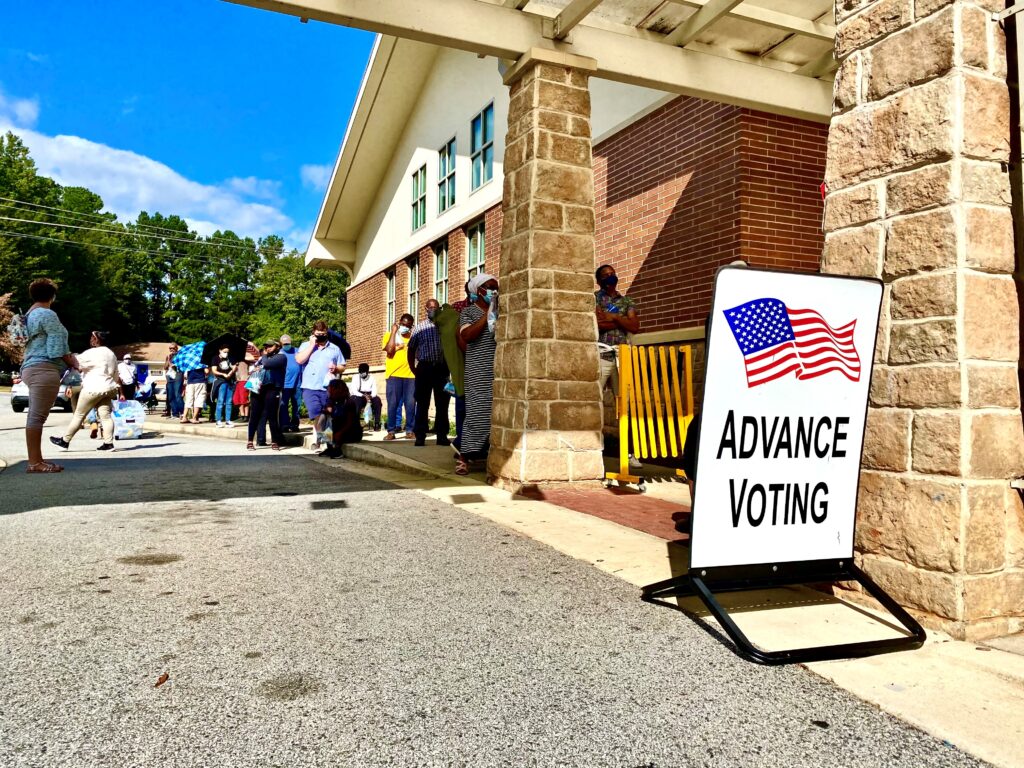
Georgians’ support or disapproval of the state’s controversial new voting law largely broke along political party lines in a survey the University of Georgia released Wednesday.
Republican voters in the survey supported while Democratic voters opposed the more high-profile measures in the recently enacted elections bill, which has become a lightning rod for national debate on election integrity and voter access following the 2020 election cycle.
Democratic leaders in Georgia and across the country have framed Georgia’s new voting law as an attempt at voter suppression targeting minority voters who helped the state’s 2020 presidential election and both U.S. Senate seats go to Democrats.
Republican leaders mostly have argued the voting measures were needed to boost confidence in the state’s election system amid former President Donald Trump’s fraud claims, which state election officials and federal courts rejected.
The survey, conducted by UGA’s School of Public and International Affairs, asked questions to 887 Georgians split about evenly among Republican and Democratic voters over a three-week period after the bill’s enactment late last month. It had a 95% confidence level.
- Read the survey’s results here.
The party-line trend held true for Georgia Republican and Democratic voters when asked if they thought the new voting measures would strengthen the state’s election system or harm it, as well as whether the intent was to bolster election integrity or make it harder to vote for certain groups to cast ballots.
The vast majority of surveyed Republicans responded that the measures will help improve election integrity and voter access. Most Democrats responded in the opposite.
Similarly, a wide majority of Republicans responded that they lacked confidence in their 2020 votes being fairly counted and that President Joe Biden won Georgia’s presidential election due to fraud. Democratic respondents dismissed fraud claims and doubt in Biden’s win.
Among the most testy proposals in the bill was a requirement for mail-in voters to provide a driver’s license or other official form of identification when casting absentee ballots. Roughly 93% of Republicans supported that measure, while 61% of Democrats opposed it.
Republicans overwhelmingly favored shortening Georgia’s runoff period from nine weeks to four, requiring absentee drop boxes to be placed in county election offices and voting precincts, moving back the deadline to request absentee ballots from four days before an election to 11 days, and barring election officials from sending voters unsolicited absentee ballot applications.
Democrats mostly opposed those measures in the survey. Independent voters were generally divided half in favor, half opposed.
Republicans also overwhelmingly supported a new prohibition against allowing voters to cast provisional ballots at precincts that they have not been officially assigned. Democrats mostly opposed that measure.
In contrast, both partisan and independent voters largely supported new rules for counties to keep polls open for two mandatory Saturdays and two optional Sundays during the three-week early voting period.
Fewer Republicans supported measures allowing state election officials to temporarily take over poor-performing county election boards and a ban on non-poll workers from handing out food and drinks within 150 feet of voters waiting in line outside precincts.
Those measures attracted nearly 50% of support from Republicans, with the bulk of Democrats opposing.
